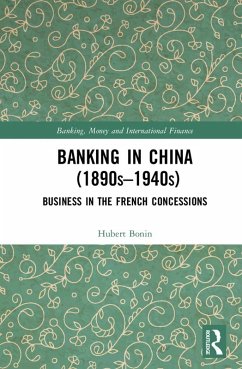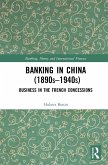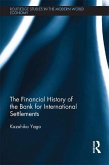From the 1890s to the 1940s, French State and entrepreneurial companies were enticed to promote French interests, beyond mere colonial targets, for the sake of economic patriotism. Chinese concessions, not including Hong Kong, were thus inserted into geo-economic moves, and French stakeholders asserted their philosophy of competition, and displayed their means of influence and investment. In this book, the author assesses the challenges which confronted French actors in the face of powerful British imperial action overseas, all the more so because German Belgian, Japanese, and then also North-American competitors joined the fray.
The book targets three concessions: Canton/Guangzhou, Tientsin/Tianjin, and Hankeou/Wuhan because of their significance in the emergence of a modern economy in the country. The three main sections of the book explore the position of French stakeholders, mainly businessmen, merchant houses, bankers, and a few industrialists, in these three port-cities and China overall. The chapters gauge their capital of influence and networking, commercial tools, and banking skills in the face of competition, the hardships of crossing the changes in economic productive systems or clusters in the various port-cities and their areas, rich with commercial offshoots. Also, several chapters underscore the uncertainties caused by geopolitical and military events in China. For each of the three concessions, commercial and banking systems, assessments of the successes and limits of the French bankers and merchants are investigated, with the aim of evaluating the reality of French entrepreneurialism and power in the regions prospected by the offshoots of French capitalism.
The book will be an invaluable resource for academics interested in the history of banking and finance, business, entrepreneurship, colonialism and "economic patriotism" in Chinese history, in geo-economics and in connected history.
The book targets three concessions: Canton/Guangzhou, Tientsin/Tianjin, and Hankeou/Wuhan because of their significance in the emergence of a modern economy in the country. The three main sections of the book explore the position of French stakeholders, mainly businessmen, merchant houses, bankers, and a few industrialists, in these three port-cities and China overall. The chapters gauge their capital of influence and networking, commercial tools, and banking skills in the face of competition, the hardships of crossing the changes in economic productive systems or clusters in the various port-cities and their areas, rich with commercial offshoots. Also, several chapters underscore the uncertainties caused by geopolitical and military events in China. For each of the three concessions, commercial and banking systems, assessments of the successes and limits of the French bankers and merchants are investigated, with the aim of evaluating the reality of French entrepreneurialism and power in the regions prospected by the offshoots of French capitalism.
The book will be an invaluable resource for academics interested in the history of banking and finance, business, entrepreneurship, colonialism and "economic patriotism" in Chinese history, in geo-economics and in connected history.
Dieser Download kann aus rechtlichen Gründen nur mit Rechnungsadresse in A, B, BG, CY, CZ, D, DK, EW, E, FIN, F, GR, HR, H, IRL, I, LT, L, LR, M, NL, PL, P, R, S, SLO, SK ausgeliefert werden.









